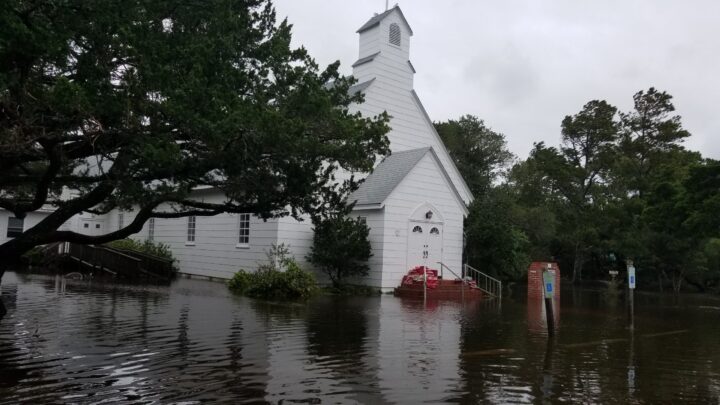Here are a few steps you can take to prepare for flooding and severe weather:

Disclaimer: The information provided in this article is for educational and informational purposes only and should not be construed as legal advice. Please contact your insurance company for more information.
Emergency Contact Information
Write down a list of emergency contacts and keep a physical copy with you. It is important to include an emergency contact that lives out of your area and can be reached by emergency officials. Make sure you share the contact information with your family members. Read the American Red Cross’ “Make a Plan” article for additional information.
Emergency Kits
Create a disaster kit that contains water, food, and supplies for up to 72 hours. If you already have a kit, make sure the spare batteries work and the food is not expired. Include medications, spare batteries, flashlights, cash, and identification in your kit. Don’t forget your pets when you are gathering your supplies – you’ll need food, water, and medications for them, too! Visit the Red Cross or FEMA website for a list of items to include in your kit.
Include COVID-19 supplies, such as hand sanitizer, cleaning materials, two cloth face coverings per person.
Emergency Updates
It is important to have access to severe weather updates and information from emergency officials. Know where your local emergency shelters are located and what the evacuation routes are for your location. Download the FEMA or the ReadyNC app to stay updated during a storm.
Prepare Your Property
Secure loose items around the home and church. Move important items to higher levels of the home and church.
Inventory
Take an inventory of your home to document the items and their condition in your home. Download mobile apps such as Sortly, Memento Database, UPHelp, or visit Brotherhood Mutual Property for an inventory list. Taking pictures or videos of the condition of your home and personal belongings is also beneficial when filing insurance claims for storm damage. When you take pictures, make sure to get serial numbers, if you can. If you have warranty paperwork for certain items, it may be helpful to keep that with the inventory.
Insurance
What does your insurance cover? How soon do you need to file a claim? Talk with your insurance company to see what your plan covers and how to properly file storm damage claims.
Important Documentation
Make sure to have copies of important documents, such as titles, health care, social security, vehicle information, utility bills, birth certificate, and mortgage information, in case documents are damaged in the storm. Consider purchasing a small fireproof/waterproof file box to keep everything together and protected.
For additional information on flood preparedness, visit the American Red Cross, ready.gov, Ready NC, and National Weather Service website.

